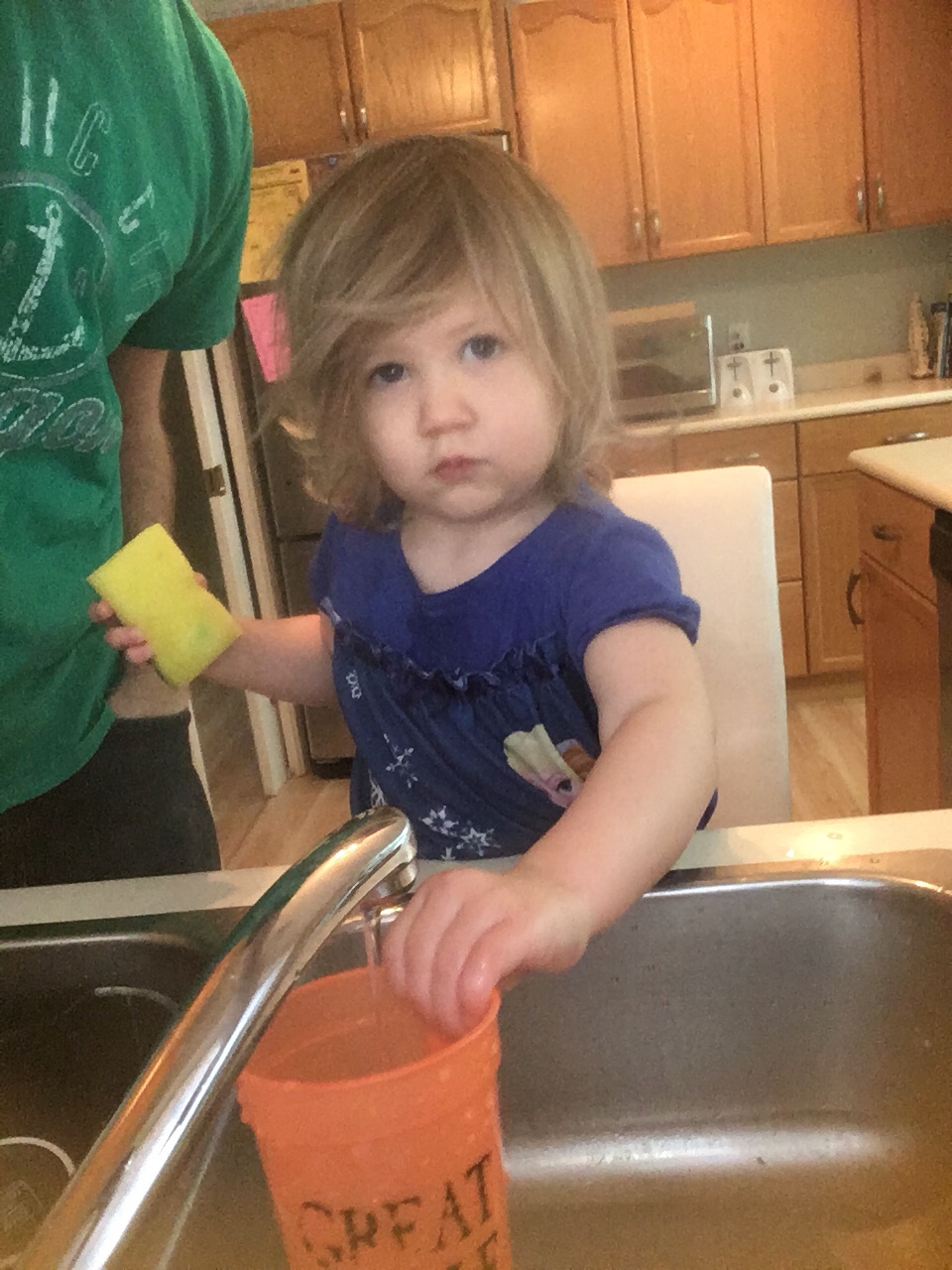I’ve had some experiences lately that I think have taught me something about using anger to get kids to do what you want.
Bed Time Struggles
Ever since our daughter Celeste was moved out of her crib and into a bunk bed with her sister Danielle, I’ve been having trouble getting her to sleep on time. She’s been staying up an extra hour or two, constantly popping out of bed to torment me. Traditionally, those last 3 hours have been my sanctuary of “me” time (which I sometimes dipped into to finish up some work), and their loss was very frustrating.
I felt like I had tried everything to get her to stay in bed. A few nights ago I got to the end of my rope around 10:30pm, and my plans were trashed, and she was defiantly saying “no want to sleep!”, I got angry.
For one or two nights it worked. She basically got scared and went to sleep. But then she acclimatized, and went to bed no sooner.
So really, anger didn’t work putting Celeste to bed. I just would become upset. As would she. And I saw her and Danielle started to adopt my behavior of getting angry to get what they wanted.
Age of Accountability
Plus they’re under 8, what in The Church of Jesus Christ of Latter-Day Saints is referred to as a “the age of accountability“. My little munchkins are 2 and 5, so they’re not yet accountable. They shouldn’t be made to feel guilty for mistakes. Understand the natural consequences, yes. But not feel guilt or shame. My church primary lesson manual said this:
Remember that children younger than eight years old are not yet accountable and do not need to repent of sin. Encourage the children to do what is right, but do not make them feel guilty for things they have done.
https://www.lds.org/manual/primary-2/lesson-26?lang=eng
If they misbehave it’s because they either don’t know better or it’s probably from my bad example.
And for people who don’t subscribe to the idea that there is a Divinely-specified age at which children become accountable for their actions, I think you can at least agree that children that young really don’t know any better.
Potty Time Games Explosion
For example, Danielle was playing educational games on a phone while Celeste used the potty and did the same. When Celeste was done, I asked Danielle to stop in the next minute or two (to finish whatever she was currently doing). But she didn’t, and was asking me for help while I was trying to get Celeste ready for the day.
Eventually, Danielle asked “what do I do next?” referring to her game. But I was feeling irritated that she hadn’t turned it off yet, so said “you turn it off!” She resentfully complied, which irritated me further. So I told her I didn’t like her attitude, which solicited more attitude. Then I basically exploded and threw her phone in the garbage. Well there, I won, apparently. She started crying, as did Celeste. And I felt like a monster. But I could see this approach wasn’t working. Maybe it got them to comply in the short term, but it wore off quickly as it became the norm. Plus, they were starting to imitate it. When they got angry, Danielle would literally growl, and Celeste would literally roar.
After that, I resolved to not get angry like that again. It just didn’t achieve the purpose: getting compliance. Plus it modeled bad behavior. And lastly, it made us all feel terrible.
Better Than Anger: Learning
That’s all well and good- so do I just let them walk all over me now? No. I talk it out with them. Extensively.
I calmly, and non-patronizingly, explain the situation and natural consequences to them. I talk until they can’t stand it anymore and comply. Yes it’s sometimes a bit exhausting on me too, but it’s been working. Sometimes I have to pull out the line “Jesus said we…”. I try to not use that when it’s not true though. If it’s not actually scripture, I don’t think it’s right to pretend it is in order to manipulate. (Eg I don’t say “Jesus wants you to clean your room!”, but I could say “Jesus did say his house is a house of order. I think weshould try to keep things tidy. Also, the Ten Commandments say to ‘Honor your parents’. One way to honor us it to do the good things we ask you to do.”)
And then, when I’m getting at the edge of my rope, I pray for help.
And what’s more, the girls seem to already be adopting this calm, helpful, demeanor. Possibly more importantly, when I’m explaining things to them, there’s some actual learning occurring. They’re learning to think about natural consequences more, and I realizing things that many adults never really grasp. (Like, “if you don’t eat a variety of foods, you’ll be unhealthy. Maybe not in short term, but long term.” Or “if you make a fuss when it’s time to leave the park, that discourages us from coming to the park. Plus it’s stressful on me, and being helpful is a way to show you love me.”)
Lastly, with my somewhat frequent sermonizing on what Jesus would want them to do, I hope they’re actually learning what Jesus wants them to do, and developing a habit of having his teachings influence their behavior.
Good Teachers Don’t Get Angry
And lastly, here’s a totally non-religious video all about teaching. It makes a few points about how to be a good teacher, but one of them is that “Good teachers don’t get angry.”
They point out that “a relaxed frame of mind is essential to successful pedagogy.” So when I was getting angry, my girls weren’t learning why they should stay in bed. (Maybe one could argue they were learning what set me off, but in my experience they weren’t. They were just learning to be distraught when I got angry for reasons they weren’t understanding, or weren’t able to fix.)
Don’t Get Angry
So, while it was appealing to use anger as a last resort to get compliance, it wasn’t working. Long term or short term. Whereas resorting to teaching, testifying, and praying to the Big Guy, has been working much better. Plus we all feel much better.




